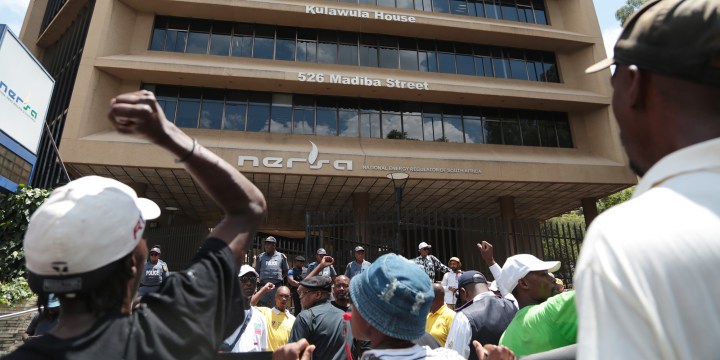ANOTHER SHOCK TO THE SYSTEM
Nersa proposes huge, inflationary 15.1% hike for municipal electricity consumers

The energy regulator has called for comments on its proposed increases for municipal consumers.
Stock up on “load shedding essentials”, charge your power banks and pull out your thermal coats, for Eskom’s Stage 6 rolling blackouts are here to stay. To add to consumer woes – despite being powerless for anywhere between six and 12 hours a day – the public will soon pay much more for the privilege of having no electricity.
By July, if the National Energy Regulator of South Africa’s (Nersa) latest proposal is approved, municipal consumers of electricity will pay 15.1% more for their power. That’s below the 18.49% increase that Eskom will implement for its direct customers from 1 July.
Nersa has now called for comments on its proposed increases for municipal consumers.
The energy sector regulator has, annually, approved percentage guideline increases and reviews the benchmarks for setting municipal tariffs.
Previously, Nersa set municipal tariff increases on the basis of a guideline and benchmark methodology. The regulator published guidelines for the percentages by which municipalities would be advised to increase their tariffs, according to different user groups such as domestic, commercial and industrial consumers. This would then be applied to the previous year’s tariffs but without factoring in the cost of supply.
As long as municipalities kept their increases within the guidelines and benchmarks, Moneyweb explained, Nersa generally approved the tariff applications without public participation.
But on 20 October 2022, after the business chambers of Nelson Mandela Bay and Pietermaritzburg approached the court for a declaratory order (supported by Eskom), the Pretoria High Court set aside and declared the municipal guideline and benchmark methodology unlawful. The judgment viewed that such a tariff determination does not comply with provisions of the Electricity Regulation Act that empowers municipalities to recover the costs of their operations, because it does not factor in municipal costs to provide the service.
Nersa was given 12 months to rectify the defect and apply a cost-of-supply approach with effect from the 2024/2025 municipal financial year.
Until such time, the municipal guideline increase and benchmarking process is in place, based on Eskom’s cost of supply.
Read more in Daily Maverick: Nersa approves 18.65% Eskom tariff hike for 2023/24 and 12.74% for the following financial year
Nersa has now proposed that municipal tariffs be approved based on a percentage guideline increase and municipal tariff benchmarks. The guideline factors in Eskom’s approved bulk price increase of electricity to municipalities and the increase in the municipalities’ cost structures.
Municipalities applying for an increase that is above the 15.1% guideline and the benchmark will have to justify their increases to Nersa through a public hearing process, and submit a cost of supply (CoS) study, which is required when significant licensee structure changes occur, such as in customer base, relationships between cost components and sales volumes.
However, Nersa says only four municipalities are currently implementing CoS-based tariffs, which translates to only 2% of municipalities nationwide. Migrating fully to this approach will pose a risk since Nersa is battling to attain 100% compliance, it says.
CoS studies require the collection and analysis of data and the keeping of proper accounting and asset records — which most municipalities don’t have at hand. This data include physical asset registers with asset replacement costs, useful lives and depreciated replacement costs, correcting sales and purchase metering data and conducting meter audits.
Municipalities/licensees that are unable to undertake the CoS studies are encouraged to use Nersa’s framework and simplified CoS tool in the interim to be assessed by the regulator.
Stakeholders have been asked to comment on the issues raised in its consultation paper by 4 May. DM/BM



















Comments - Please login in order to comment.